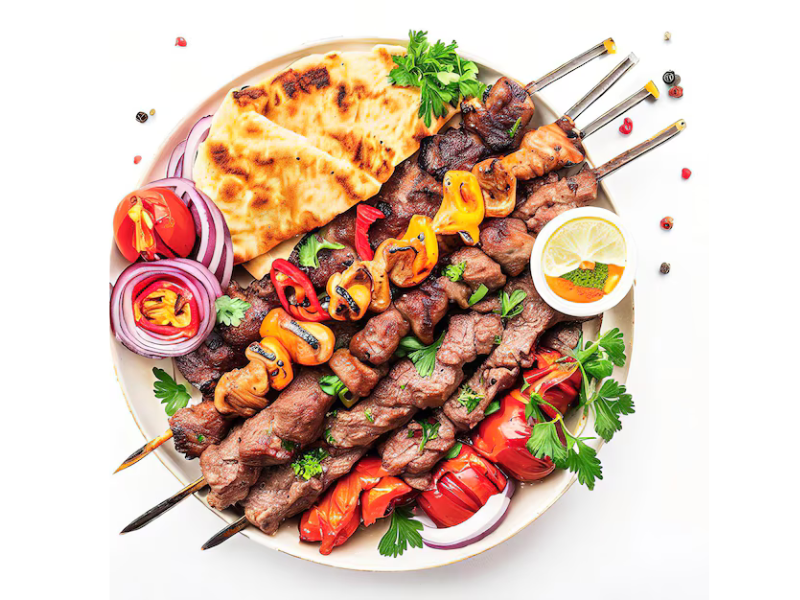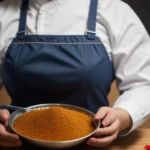Arab cuisine is known for its rich flavors, aromatic spices, and mouthwatering dishes that have been passed down through generations. From savory stews to fragrant rice dishes, authentic Arab cooking has a unique and delicious taste that is cherished by many around the world. In this article, we will uncover the secrets of authentic Arab cooking, exploring the ingredients, techniques, and traditions that make this cuisine so special.
1. The Rich History of Arab Cuisine
Arab cuisine has a long and storied history, dating back thousands of years to ancient civilizations in the Middle East. Influenced by trade routes and various conquerors, Arab cuisine has evolved over time, incorporating traditions from Persia, Turkey, and other neighboring regions.
2. The Importance of Fresh Ingredients
One of the key secrets to authentic Arab cooking is the use of fresh, high-quality ingredients. From fragrant herbs like mint and parsley to sweet dates and tangy pomegranates, Arab cuisine is known for its bold flavors and vibrant colors.
3. The Role of Spices in Arab Cooking
Spices are an essential component of Arab cooking, adding depth and complexity to dishes. Common spices used in Arab cuisine include cumin, coriander, cinnamon, and saffron, each adding their own unique flavor profile to a dish.
4. The Art of Slow Cooking
Many Arab dishes are cooked slowly over low heat, allowing the flavors to meld together and develop over time. This slow cooking process is key to creating the rich, complex flavors that are characteristic of Arab cuisine.
5. The Influence of Regional Cuisine
Arab cuisine is incredibly diverse, with each region boasting its own unique dishes and flavors. From the spicy tagines of North Africa to the aromatic biryanis of the Arabian Peninsula, each region has its own culinary traditions that contribute to the richness of Arab cuisine.
6. Mezze: The Heart of Arab Dining
Mezze, a collection of small dishes served as appetizers, is a central part of Arab dining culture. From hummus and tabbouleh to stuffed grape leaves and kebabs, mezze allows diners to sample a variety of flavors and textures in one meal.

7. The Art of Kebabs
Kebabs are a staple of Arab cuisine, with marinated meats skewered and grilled to perfection. Whether it’s juicy chicken shish taouk or tender lamb kofta, kebabs are a beloved dish in Arab cooking.
8. The Versatility of Rice Dishes
Rice is a staple in Arab cuisine, with various dishes featuring fragrant, fluffy grains that are flavored with spices and herbs. From spicy biryanis to delicate pilafs, rice dishes are a versatile and delicious part of Arab cooking.
9. The Sweet Delights of Arab Desserts
Arab cuisine is known for its decadent desserts, with sweet treats like baklava, knafeh, and basbousa tantalizing the taste buds. Made with ingredients like honey, nuts, and rose water, Arab desserts are a delightful end to any meal.
10. The Importance of Hospitality in Arab Culture
Hospitality is a key aspect of Arab culture, with guests always welcomed with open arms and served generous portions of food. Arab cooking is often centered around bringing people together and fostering connections through shared meals.
11. Preserving Traditions Through Food
Many Arab families pass down recipes and cooking techniques from generation to generation, preserving the culinary traditions of their ancestors. By cooking and sharing these dishes, Arab families keep their heritage alive and honor the past.
12. Exploring Arab Cooking at Home
While Arab cuisine may seem daunting to cook at home, many dishes are actually quite simple and can be made with readily available ingredients. By embracing the flavors and traditions of Arab cooking, home cooks can experience the magic of this vibrant cuisine.
13. The Influence of Arab Cuisine on the Global Food Scene
Arab cuisine has had a significant impact on the global food scene, with dishes like falafel, shawarma, and hummus becoming popular in countries around the world. By showcasing the flavors and techniques of Arab cooking, chefs and home cooks alike can celebrate the richness of this culinary tradition.
14. Learning from Arab Chefs and Cooks
Many Arab chefs and cooks are passionate about sharing their culinary knowledge and expertise with others. By learning from these experts, home cooks can uncover the secrets of authentic Arab cooking and bring the flavors of the Middle East into their own kitchens.
15. Embracing the Magic of Arab Cooking
Authentic Arab cooking is a celebration of flavors, traditions, and hospitality. By exploring the ingredients, techniques, and traditions of Arab cuisine, home cooks can uncover the secrets of this vibrant culinary tradition and create delicious dishes that are sure to impress family and friends. So, grab your apron and get ready to embark on a culinary journey through the enchanting world of Arab cooking.
FAQs about “Uncovering the Secrets of Authentic Arab Cooking”
- What distinguishes “Uncovering the Secrets of Authentic Arab Cooking” from other Arab cookbooks? “Uncovering the Secrets of Authentic Arab Cooking” stands out for its in-depth exploration of Arab culinary traditions, focusing on authentic recipes, techniques, and ingredients passed down through generations. It offers a comprehensive understanding of Arab cuisine beyond just recipes.
- Which aspects of Arab cuisine does this book cover? This book covers a wide range of aspects of Arab cuisine, including traditional dishes, cooking methods, cultural influences, and the significance of food in Arab culture. It delves into the regional variations and historical context that shape Arab culinary traditions.
- Are the recipes in “Uncovering the Secrets of Authentic Arab Cooking” suitable for home cooks of all skill levels? Yes, “Uncovering the Secrets of Authentic Arab Cooking” caters to cooks of all skill levels, with recipes that range from simple and beginner-friendly to more advanced and elaborate. Each recipe is accompanied by clear instructions and tips to ensure success in the kitchen.
- How does this book reveal the secrets of authentic Arab cooking? This book uncovers the secrets of authentic Arab cooking by providing insights into traditional ingredients, flavor combinations, and cooking techniques used in Arab cuisine. It offers tips and tricks from experienced Arab chefs to help readers achieve the true flavors of Arab dishes.
- Can readers expect to gain insights into the cultural and historical background of Arab cooking in this book? Absolutely! “Uncovering the Secrets of Authentic Arab Cooking” delves into the cultural and historical background of Arab cooking, exploring its roots, influences, and evolution over time. Readers will gain a deeper understanding of the cultural significance of food in Arab society and the customs and traditions associated with Arab culinary heritage.
Advantages:
- Intriguing title: “Uncovering the Secrets of Authentic Arab Cooking” suggests a journey into the depths of Arab culinary traditions, enticing readers with the promise of discovering hidden gems.
- Cultural immersion: The title implies a deep dive into Arab cooking, offering readers insights into the culture, history, and regional nuances of Arab cuisine.
- Educational value: Readers can expect to learn about the techniques, ingredients, and traditions that define authentic Arab cooking, gaining a deeper understanding of the culinary heritage of the Arab world.
- Gastronomic adventure: The title promises readers an exciting culinary journey through Arab cuisine, providing them with an opportunity to explore a wide variety of dishes and flavors.
- Inspiration for cooking: The title may inspire readers to try cooking Arab dishes at home, providing them with recipes, tips, and techniques to recreate the authentic flavors of Arab cuisine in their own kitchens.
- Generalization: The term “Arab cooking” encompasses a wide range of culinary traditions across different countries and regions, potentially oversimplifying the diversity within Arab cuisine.
- Lack of specificity: The title does not specify which aspects of Arab cooking will be explored or which regions will be covered, leaving readers uncertain about the scope of the content.
- Potential cultural appropriation: Without proper context and understanding, exploring Arab cuisine could risk appropriating cultural elements without acknowledging their significance or respecting their origins.
- Accessibility of ingredients: Some Arab dishes may require specific ingredients that are difficult to find outside of the Arab world or major culinary hubs, limiting the practicality of the recipes for some readers.
- Dietary restrictions: Arab cuisine often includes ingredients like meat, dairy, and grains, which may not be suitable for individuals with dietary restrictions or preferences, potentially alienating some readers.
















